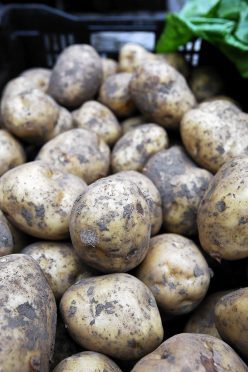A group of scientists is looking to combat the problem of “greening” in potatoes as part of a bid to strengthen global food security.
The consortium, which includes industry and retailers alongside researchers from the James Hutton Institute and Southampton University, said the issue costs around £100million a year in lost produce at the farm gate and consumer purchases in the retail sector.
Greening – a formation of a green pigmentation on the surface of the potato caused by chlorophyll – happens when potato tubers are exposed to light either in the field, in storage or on shop shelves.
It is directly linked to 116,000 tonnes of potato waste each year, according to a report by the Waste and Resources Action Programme (Wrap), and leaves UK retailers about £60million out of pocket each year.
Greening in the fields also costs farmers around £37million per annum.
Now, according to Mark Taylor, senior researcher at the James Hutton Institute and project lead investigator, partners spanning the entire food chain, from production and packaging to major retailers, have come together in an attempt to resolve the problem.
“We aim to identify conditions for light-induced tuber greening, which in turn will inform the design of prototype packaging film to reduce greening during storage and in store,” said Mr Taylor.
The 18-month research project will be partly funded by the UK’s innovation agency, Innovate UK, and features the participation of commercial partners such as Amcor Flexibles UK, Branston, Tesco and Waitrose.
